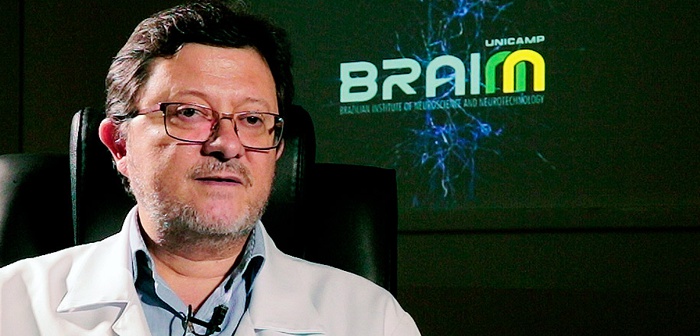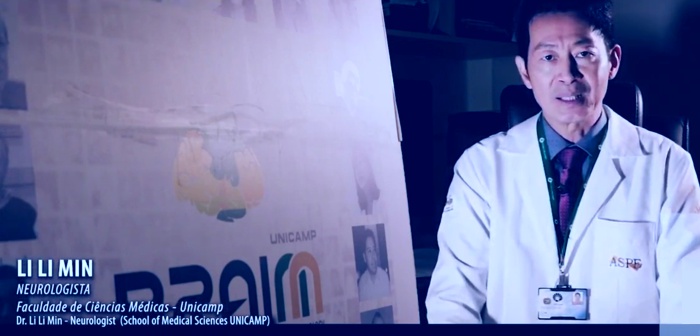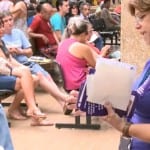Unicamp produces video on Purple Day and interviews researchers from BRAINN.
March 27th 2019 | originally published at Jornal da Unicamp
The first epileptic seizure that Professor Ismênia Oliveira lived happened in the adult phase, when she was 21 and while she slept. “My family woke up when I was struggling in bed and foaming a lot through my mouth. I remained unconscious and only woke up when I was almost at the hospital”, recalls Ismênia about the convulsions that, from that day on, would become more frequent and constant.“I had up to four seizures a day. They made me tired and sleepy. It was impossible to keep up with the routine. My performance at the university was beginning to fall”, says the teacher, whose quality of life only resumed balance after surgical treatment, about a year and a half ago. “After the surgery I did not have any more seizures. I can come and go safely, with the certainty that I will not be more vulnerable in the face of a crisis. You have to face epilepsy head on, with optimism and persistence, without ever giving up treatment, although it often seems that the medication is not having an effect”, she says.
“It is important that people know that life continues and that it is possible to lead a normal life even with epilepsy”, adds university student Adriano Sacco, who after surgery also managed to overcome epileptic seizures, events that happened to him ever since the age of three.
The story of Ismênia and Adriano sums up the struggles of thousands of people who deal daily with epilepsy, a chronic neurological disease that affects about 1% of the world’s population. Despite the high prevalence, epilepsy is still little debated by society and very socially stigmatized.
The Purple Day of Epilepsy is celebrated on March 26th. Due to the importance of the date, Unicamp Pro-Rectory of Extension and Culture (Proec) brings the subject to the fore in another special edition of the program Extensão 48. With a duration of approximately 11 minutes, the video “Epilepsy in School” (which you can watch above, in Portuguese) brings together specialists from Unicamp, non-governmental organizations, representatives of civil society, social activists and patients to discuss how the knowledge produced at the university maintains an interface with society in general, through extension.
Causes, diagnosis and treatment
The causes of epilepsy are extremely diverse. The disease can be triggered by tumors, sequelae of infection and cranial traumas or by genetic factors. The diagnosis is essentially clinical and depends on good communication between the patient and the doctor. The treatment can also vary, according to the type of epilepsy. Chief among these is the use of medication for the management of seizures, but there are other types of interventions for patients with more difficult to control forms of epilepsy (20% to 30%).

Fernando Cendes, from CEPID BRAINN. Image: Jornal da Unicamp
“Surgery is an established and very effective treatment. It consists of resection of the affected brain area without further damage to the patients. Another trend in treatment has been the use of cannabinoid substances to control epileptic seizures, “explains Professor Fernando Cendes, head of the Department of Neurology at the Faculty of Medical Sciences (FCM) at Unicamp.
Research and university extension
According to Fernando Cendes, the study of epilepsy is multiprofessional. The joint work of several areas of knowledge allows an insertion within the university with possibilities of working in activities of education, training, scientific production, and clarification with the population in general. “We have, for example, a very large interaction with many STEM areas that work with signal processing to improve detection of diffuse changes and diagnostic accuracy”, says the researcher.
Nationally recognized for his work with the population regarding the awareness of epilepsy, neurologist Li Li Min, professor of FCM, reinforces the role of universities, especially public ones, in extension activities. The specialist – who in 2013 was elected Ambassador of Epilepsy in Brazil by the International League Against Epilepsy and the International Bureau for Epilepsy – says that there is an increasing need for the insertion of the academy into society, since stigma and prejudice related to illness are still very much present.
“We have to contribute with actions that reinforce the self-esteem and the self-confidence of the individuals, from initiatives that favor the autonomy of the patients. Diagnosis is not the end of life and epilepsy does not define the person”, explains Li.
The video also shows how epilepsy is treated in the school environment and how the interaction between the university and the school public occurs. It also brings correct information about the disease to try to reduce stigma and bullying among students.
For the president of the NGO “Health Care for Patients with Epilepsy,” Isilda Assumpção, university extension actions are important for the movement in favor of people suffering from epilepsy. “The university has numerous resources to offer the population, from the scientific development to training and professional qualification. This is the interface we want and need. People with epilepsy want to study, work and raise a family. After each crisis, they rise and continue to fight for the fulfillment of their dreams”, says Isilda.
See the article in the Jornal da Unicamp website









 Português do Brasil
Português do Brasil